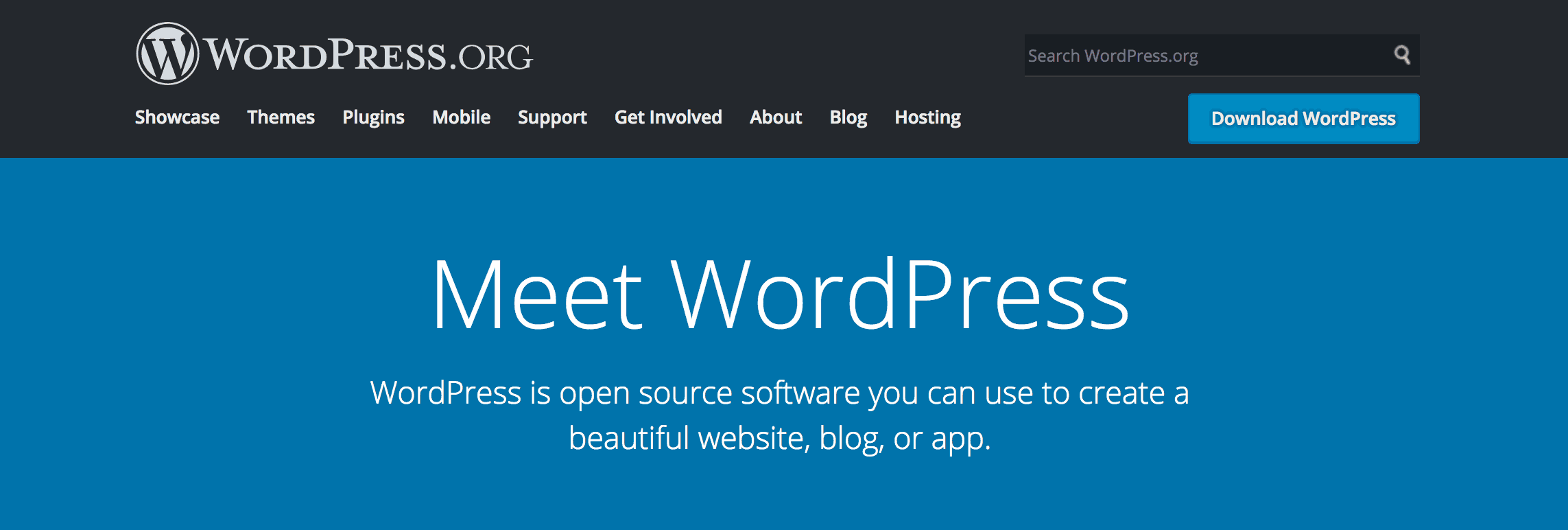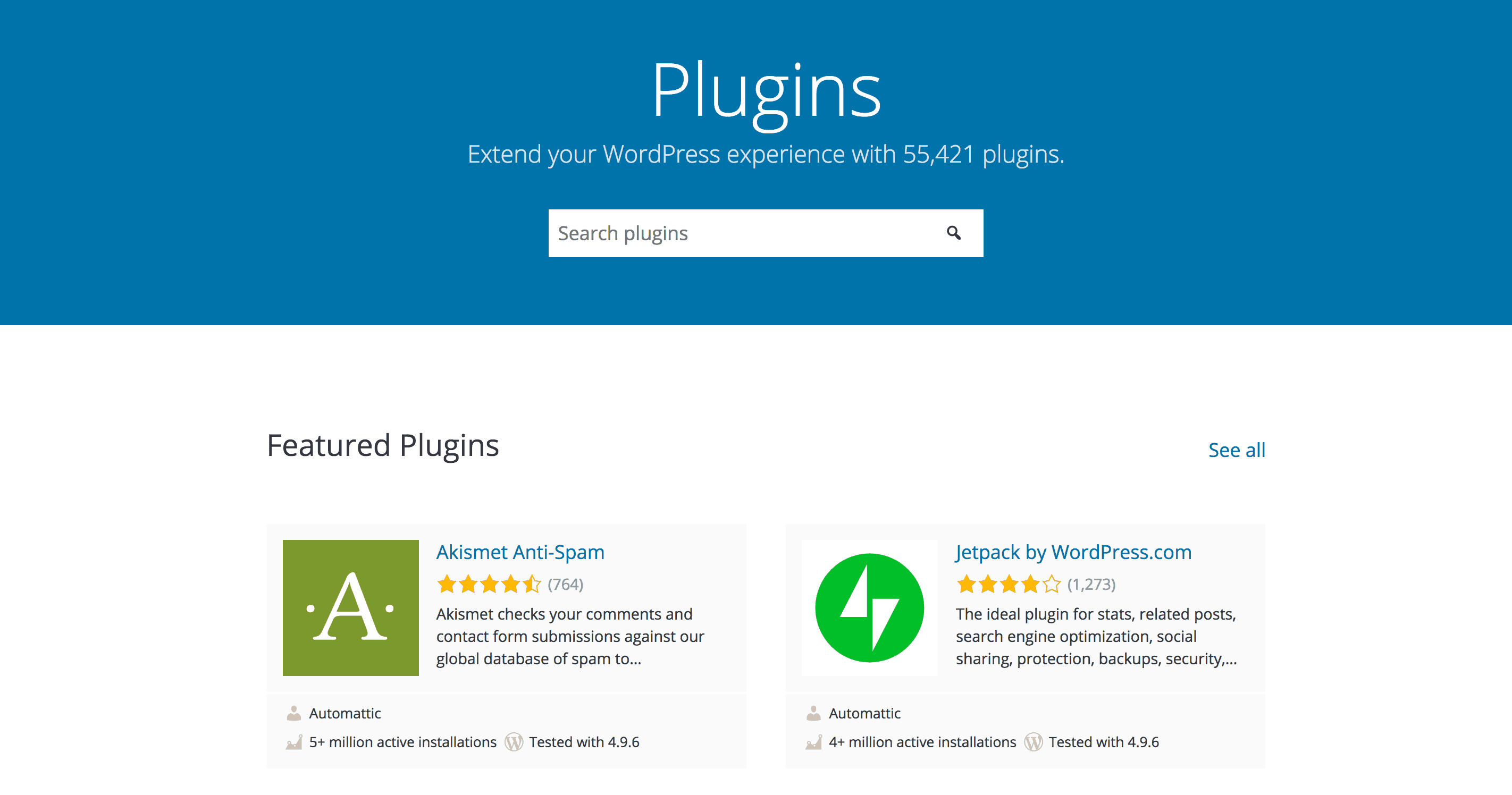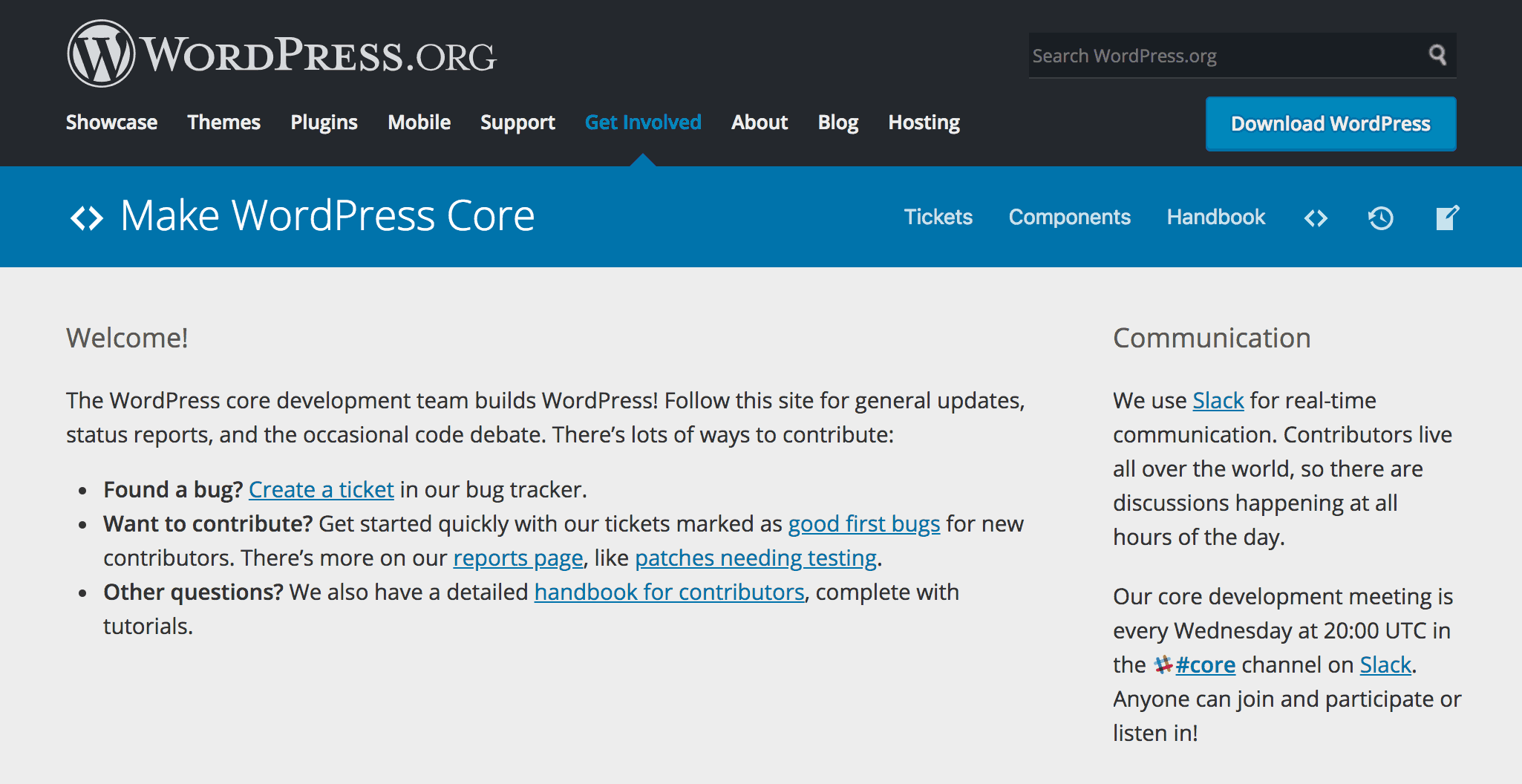WordPress is built on the work of thousands of volunteers. In fact, literally anybody can contribute to the platform. This openness offers a perfect opportunity for eager developers to join in and help shape the future of WordPress.
What’s more, getting started with WordPress development is surprisingly easy, and there are tasks available to those at all levels of experience and of all skill sets. This includes everything from contributing code directly to the platform’s core, helping out with official documentation, and even testing plugins.
In this article, we’ll look at how you can begin developing for WordPress. Plus, we’ll also show you some easy ways to get started. Let’s go!
What It Means to Develop for WordPress
Since WordPress was released in 2003, thousands of developers have worked on its code. In fact, the 4.9.6 update alone included contributions from over 70 different users. This is because WordPress is not maintained by an in-house team or a specific company. Instead, the platform is continuously developed and evolved by volunteers from all over the world:

This openness and level of collaboration has shaped WordPress into the most popular content management system in the world. In addition, this makes it very easy for anybody to help out with the ongoing project. That’s true whether you’d prefer to do so by creating a plugin or making your own theme, or by contributing code directly into core.
If you want to get involved, of course, you will likely need at least a small amount of experience and technical knowledge. First and foremost, we recommend that you understand the basics of PHP, which is a scripting language WordPress relies on. With a solid grounding in PHP, you’ll already understand how much of WordPress works.
We also recommend that you study up on HTML and CSS, as knowing these languages will be very helpful. Even if you don’t intend on becoming a professional developer, being proficient with the languages the platform runs on can assist you in protecting your own site and troubleshooting errors.
That said, even if you’re not interested in coding or developing, you can still contribute to WordPress in a number of ways. For example, you could get involved in making the platform more accessible, take part in the translation project, or join the support team. No matter what your skills and interests are, there is surely a way you can help make WordPress better.
Why It’s Worth Your Time to Develop for WordPress
As we mentioned, WordPress wouldn’t exist without volunteers. That’s because the platform is fully open-source, and relies solely on the hard work of dedicated users. Getting involved is the best way to give back to the community if you already benefit from it. In fact, WordPress co-founder Matt Mullenweg has suggested that companies using WordPress should aim to contribute 5% of their resources back into developing the platform in some way. GoWP is a proud support of the five for the future effort.
Besides the benefits to the platform and community, developing for WordPress is a perfect way to evolve in your chosen field, and even pick up new skills. It enables you to work on a variety of tasks, and collaborate with people from every corner of the world. Even if you don’t contribute directly to core, you can learn a lot simply by creating your own theme or writing a plugin.
Best of all, you could even make money doing this. Many entrepreneurs have made a lucrative career through WordPress development. We don’t recommend going into it just for the money, but it is possible to use your WordPress work to supplement your normal income.
If all of this sounds intriguing, we’ll discuss how you can get started in the next section. However, first we recommend that you join the WordPress Slack channels, as these will let you take part in meetings and planning. This is a great way to get a foot in the door of the WordPress development community, and begin understanding how it all works.
How to Start Developing for WordPress (In 3 Ways)
Now that we’ve hopefully captured your attention, we’re going to show you how you can contribute to the ongoing WordPress project. Before you jump in, it’s worth taking a look at the coding standards for WordPress, as they will help you write code that is consistent with the rest of the platform.
Once you’ve done that, all that’s left is to choose a way to get involved!
1. Test New WordPress Releases

Testing is an important part of the development process. New releases of WordPress always need to be thoroughly vetted. This process ensures that each version is in working order, and helps to highlight potential issues and areas where the platform could be improved.
What’s more, testing is an ideal way to become familiar with the basics of WordPress. This is especially true if you have little-to-no coding experience, as testing gives you a chance to pick up new skills and learn the necessary details along the way. In other words, you can help out while getting insight into the development process at the same time. This can be immensely helpful if you decide to contribute with your own code later on.
If you want to join the roster of testers, you should first download the WordPress Beta Tester plugin. This enables you to use the most recent development versions of WordPress, so you can test them and look for issues. We strongly recommend that you only do this on staging sites, as it’s never a good idea to use untested software or perform troubleshooting on a live site.
When you do find an issue, you can then report it as a bug. However, since so many people are using and testing WordPress, you should first check to ensure that your problem has not already been reported, using the ticket search function. With a little practice, you’ll be exterminating WordPress bugs in no time!
2. Create a Plugin or Theme

As you probably know, a plugin is a type of extension that adds new code and functionality to WordPress, while themes are used to shape the appearance of a website. These tools are a big part of what makes WordPress such a flexible and user-friendly platform, especially since anybody can create their own and share them with others.
By developing a plugin or theme, you can create something that’s unique and is truly yours. You can tailor its functionality and features to match your exact preferences. Plus, it’s a great avenue for getting started with development, with almost no risk involved. If you’re just creating for yourself, there’s no pressure on the final product, and you can experiment freely.
To get started with plugin development, you will need at least a basic understanding of PHP. You should also study how plugins actually work alongside the WordPress core files, using hooks, actions, and filters. Then, you’ll be ready to try putting together a simple but functional plugin.
If you’d rather create a theme, you should make sure you have some experience working with HTML and CSS. While you could create a theme completely from scratch, an easier method is to use a starter theme. This is essentially an extremely bare-bones theme, which you can use as a template for your own creation, adding styles and layouts as you please. There are several excellent starter themes out there, but we recommend Underscores for beginners.
Once your creation is done, you might want to share it with the community. You can do this by submitting it to the Theme and Plugin Directories respectively. However, before you do that, you will need to ensure that it conforms to the guidelines for themes or plugins (as relevant).
3. Contribute to WordPress Core

If you’re feeling confident enough to get your hands dirty with WordPress itself, developing for core is the final frontier. ‘Core’ refers to the basic functionality of WordPress, as it appears when you install it without plugins, themes, or any other extras. Essentially, core is the purest form of the platform.
WordPress core is developed using a project management system called trac. Each issue or task is logged as a ‘ticket’. These tickets are all public, meaning that anybody can work on them. To get involved in core development, you can open new tickets, or help out by fixing existing issues. Before you do that, you’ll want to have some experience working with PHP, CSS, and JavaScript.
A good place to begin is by looking at the Good First Bugs tickets. These are tickets that have been labeled as useful introductions for beginners to tackle. They are usually easy enough that someone with limited experience working with WordPress can deal with them.
Finally, you should also consider joining the #core channel on Slack. This is where contributors discuss plans, and explain how they’re moving forward with goals and bugs. This is your best way to get involved and start communicating directly with other developers.
Conclusion
If you want to help shape the future of the WordPress platform, you’re in luck. In fact, it might surprise you just how easy it is to get started with developing for WordPress. No matter what your experience and specialized skills are, there’s likely a task you can take on.
In this article, we’ve covered some of the best ways you can start contributing to WordPress. These include:
- Testing new WordPress releases.
- Creating a plugin or theme.
- Contributing to WordPress core
Image credit: Pixabay.






